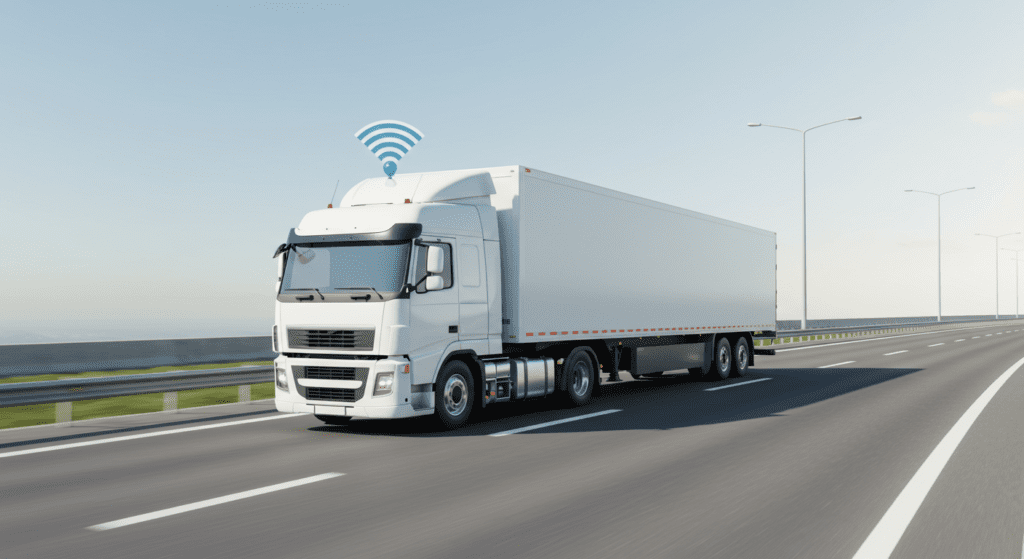- Driver Fatigue and Hours of Service Regulations
- Vehicle Maintenance and Mechanical Failures
- Cargo Theft and Secure Transport Practices
- Compliance with Safety and Regulatory Standards
- Weather and Environmental Hazards
- Accidents and Liability Issues
- Cybersecurity Risks for Trucking Companies
- Financial Risks and Insuring Business Operations
- Employee Training and Risk Management Programs
- Insurance Solutions: Tailored Policies for Trucking Businesses
Common Risk Factors in the Trucking Industry and Insurance Solutions
The trucking industry is a vital component of the global economy, responsible for transporting goods across vast distances. However, it faces numerous risk factors that can impact operations, safety, and financial stability. Understanding these risks and implementing effective insurance solutions is essential for trucking companies to thrive in a competitive environment.
1. Driver Fatigue and Hours of Service Regulations
Driver fatigue is a significant risk in the trucking industry, leading to decreased alertness and increased likelihood of accidents. The Federal Motor Carrier Safety Administration (FMCSA) enforces Hours of Service (HOS) regulations to mitigate this risk by limiting the number of hours a driver can operate a vehicle without rest. Compliance with these regulations is crucial to prevent fatigue-related incidents. Trucking companies must invest in technologies like electronic logging devices (ELDs) to monitor driving hours and ensure adherence to HOS rules, thereby enhancing driver safety and reducing liability.

2. Vehicle Maintenance and Mechanical Failures
Regular vehicle maintenance is essential to prevent mechanical failures that can cause accidents and disrupt operations. Poorly maintained trucks are more prone to breakdowns, leading to costly repairs and downtime. Implementing a rigorous maintenance schedule and conducting thorough inspections can identify potential issues before they escalate. Additionally, investing in quality parts and skilled technicians ensures that vehicles remain in optimal condition, minimizing the risk of unexpected mechanical failures and enhancing the overall reliability of the fleet.
3. Cargo Theft and Secure Transport Practices
Cargo theft poses a significant threat to trucking companies, resulting in financial losses and damaged reputations. To combat this risk, companies must adopt secure transport practices such as using GPS tracking systems, installing security cameras, and implementing robust lock systems. Additionally, training drivers on security protocols and choosing safe routes can reduce the likelihood of theft. Collaborating with law enforcement and utilizing insurance coverage for cargo loss further safeguards against financial setbacks caused by stolen goods.

4. Compliance with Safety and Regulatory Standards
Adhering to safety and regulatory standards is critical for trucking companies to operate legally and maintain a good standing within the industry. Non-compliance can lead to hefty fines, legal actions, and loss of licenses. Companies must stay informed about evolving regulations, including those related to vehicle emissions, driver qualifications, and safety protocols. Implementing comprehensive compliance programs and regular training sessions ensures that all employees understand and follow the necessary guidelines, fostering a culture of safety and responsibility.
5. Weather and Environmental Hazards
Trucking operations are often exposed to unpredictable weather and environmental hazards that can cause delays, accidents, and damage to cargo. Severe weather conditions like snowstorms, hurricanes, and heavy rains increase the risk of road accidents and vehicle damage. Companies can mitigate these risks by investing in weather forecasting tools, training drivers on how to handle adverse conditions, and planning flexible routes. Additionally, proper insurance coverage for weather-related damages ensures that companies can recover financially from unexpected environmental challenges.

6. Accidents and Liability Issues
Accidents are an inherent risk in the trucking industry, potentially leading to significant financial and legal consequences. Liability issues can arise from property damage, bodily injuries, and environmental harm caused by accidents. To manage these risks, trucking companies should maintain comprehensive liability insurance that covers various scenarios. Implementing safety protocols, driver training programs, and accident prevention technologies like collision avoidance systems can reduce the likelihood of accidents and limit liability exposure.
7. Cybersecurity Risks for Trucking Companies
As the trucking industry becomes increasingly reliant on digital technologies, cybersecurity risks have become a major concern. Cyberattacks can compromise sensitive data, disrupt operations, and lead to financial losses. Trucking companies must invest in robust cybersecurity measures, including firewalls, encryption, and regular security audits. Training employees on best practices for data security and implementing protocols to respond to cyber incidents are essential steps in protecting the company’s information and maintaining operational integrity.

8. Financial Risks and Insuring Business Operations
Financial stability is crucial for the success of trucking companies, yet they face various financial risks such as fluctuating fuel prices, economic downturns, and unexpected expenses. To safeguard against these risks, companies should implement sound financial management practices, including budgeting, forecasting, and maintaining emergency funds. Insurance solutions like business interruption insurance, liability coverage, and comprehensive commercial auto insurance provide financial protection against unforeseen events, ensuring that the business can continue operating smoothly during challenging times.
9. Employee Training and Risk Management Programs
Effective employee training and risk management programs are vital for minimizing risks in the trucking industry. Training programs should cover essential topics such as defensive driving, safety protocols, regulatory compliance, and emergency response procedures. By educating employees on best practices and potential hazards, companies can reduce the likelihood of accidents and improve overall operational efficiency. Additionally, implementing a robust risk management framework allows companies to identify, assess, and mitigate risks proactively, fostering a safer and more resilient workforce.

10. Insurance Solutions: Tailored Policies for Trucking Businesses
Insurance solutions tailored specifically for trucking businesses are essential to address the unique risks they face. Comprehensive insurance packages typically include commercial auto insurance, liability coverage, cargo insurance, and worker’s compensation. These policies protect against a wide range of risks, from vehicle accidents and cargo theft to employee injuries and legal liabilities. Additionally, insurers may offer specialized coverage options such as non-trucking liability and physical damage insurance, allowing companies to customize their protection based on their specific needs. Partnering with an experienced insurance provider ensures that trucking businesses receive the coverage necessary to mitigate risks and maintain financial stability.
Conclusion
In conclusion, the trucking industry faces a myriad of risk factors that can impact safety, operations, and financial health. By understanding and addressing these risks through effective strategies and tailored insurance solutions, trucking companies can enhance their resilience, ensure compliance, and promote long-term success in a challenging and dynamic environment.
